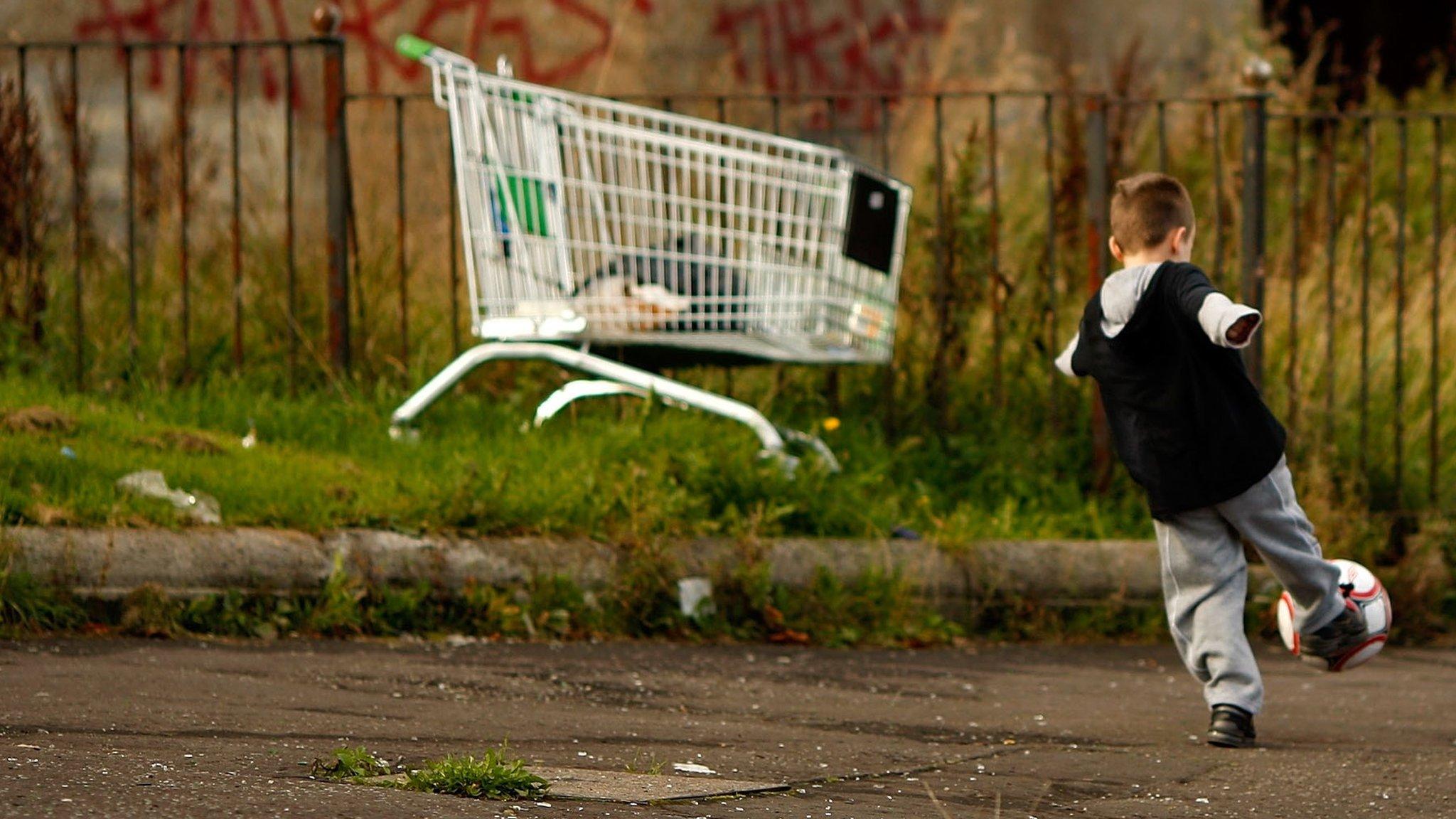Photo exhibition showcases the people tackling poverty
- Published
The impact of poverty in 21st Century Britain is the focus of a new exhibition which showcases those trying to help their struggling neighbours. Four people making a difference in their communities explain how they became involved.
'I want to be a spark in the plug'
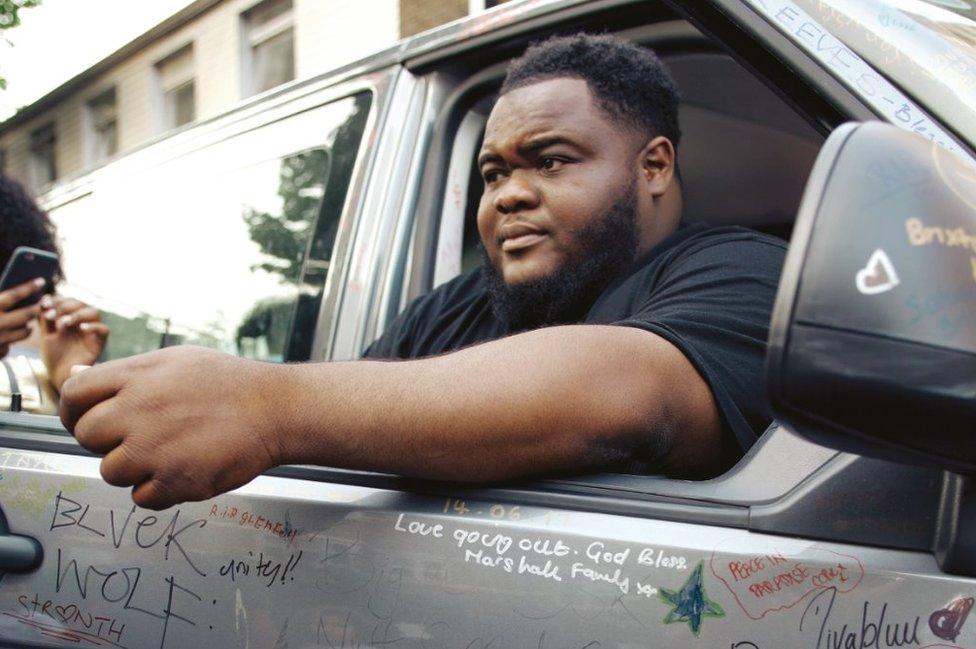
Micah Lammie says he learned from everyone in his community
Battersea and Brixton helped shape Micah Lammie into the man he is today, so now he is repaying the debt.
"Life was difficult as a kid from a one-parent family," the 30-year-old said. "I was defiant and in a lot of trouble at school. It takes a village to raise a child so I didn't just learn from my parents, I learned from everyone in my community.
"Those are things I want to continue on, raising our next generation."
He initially found work in call centres then a chance encounter at a funeral with Brixton Soup Kitchen founder Solomon Smith gave him his true calling.
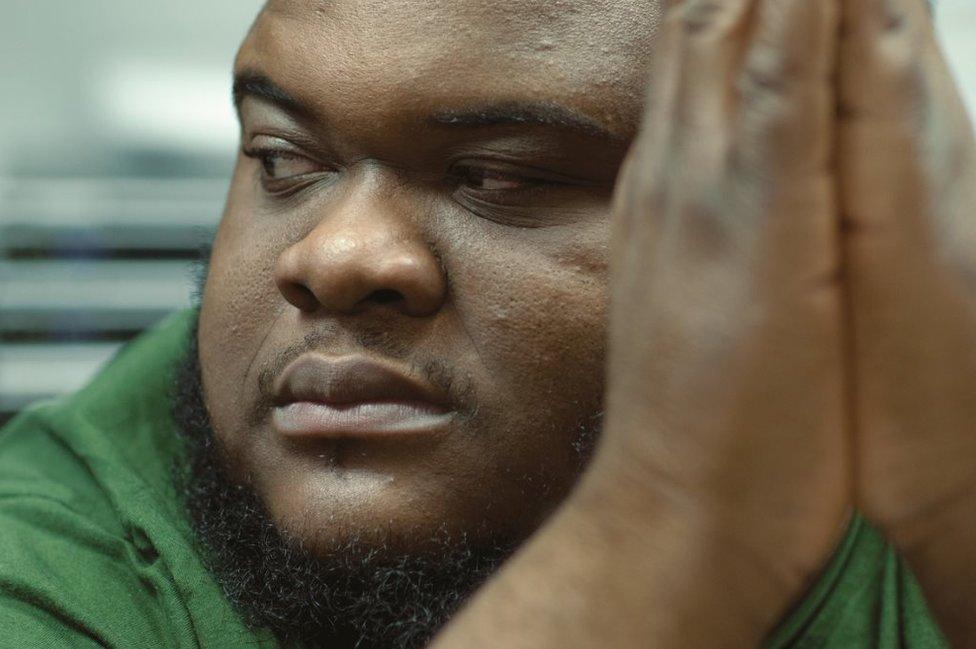
A chance meeting saw him end up at the Brixton Soup Kitchen
"I've known Solomon from back in the day," Micah said. "I asked to get involved and I've never looked back."
Now he is the centre manager of the service, which offers food and legal advice to rough sleepers and the community.
"It's a safe haven for misunderstood people. Everything starts somewhere, there's been ups and downs but we're helping people. I want to be a spark in the plug, I won't change the world but I'll invest in a person who will."
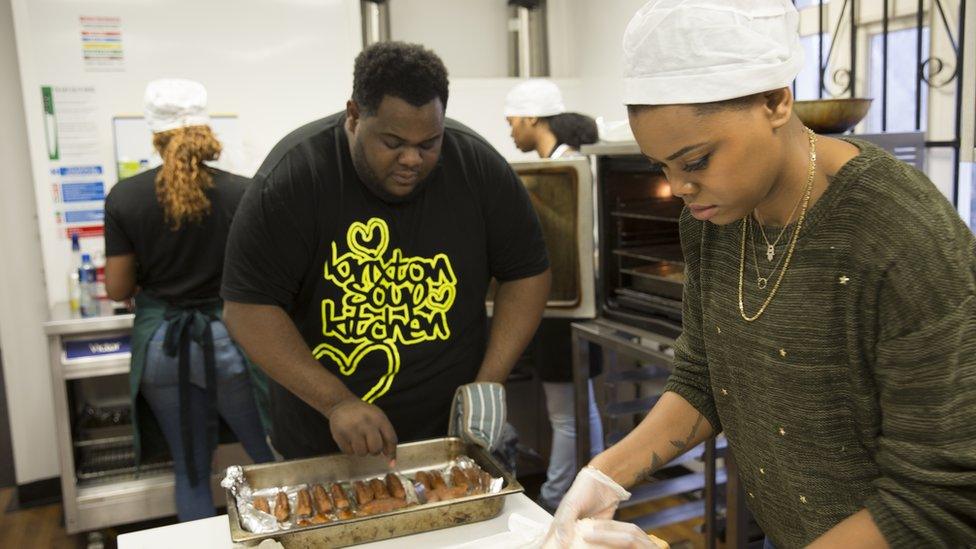
Micah is now its centre manager
'I knew hunger'
After having experienced her own financial struggles, Mary Brennan saw her neighbours in Cross Green, Leeds, were also facing difficulties.
"I knew hunger and poverty," the 68-year-old said.
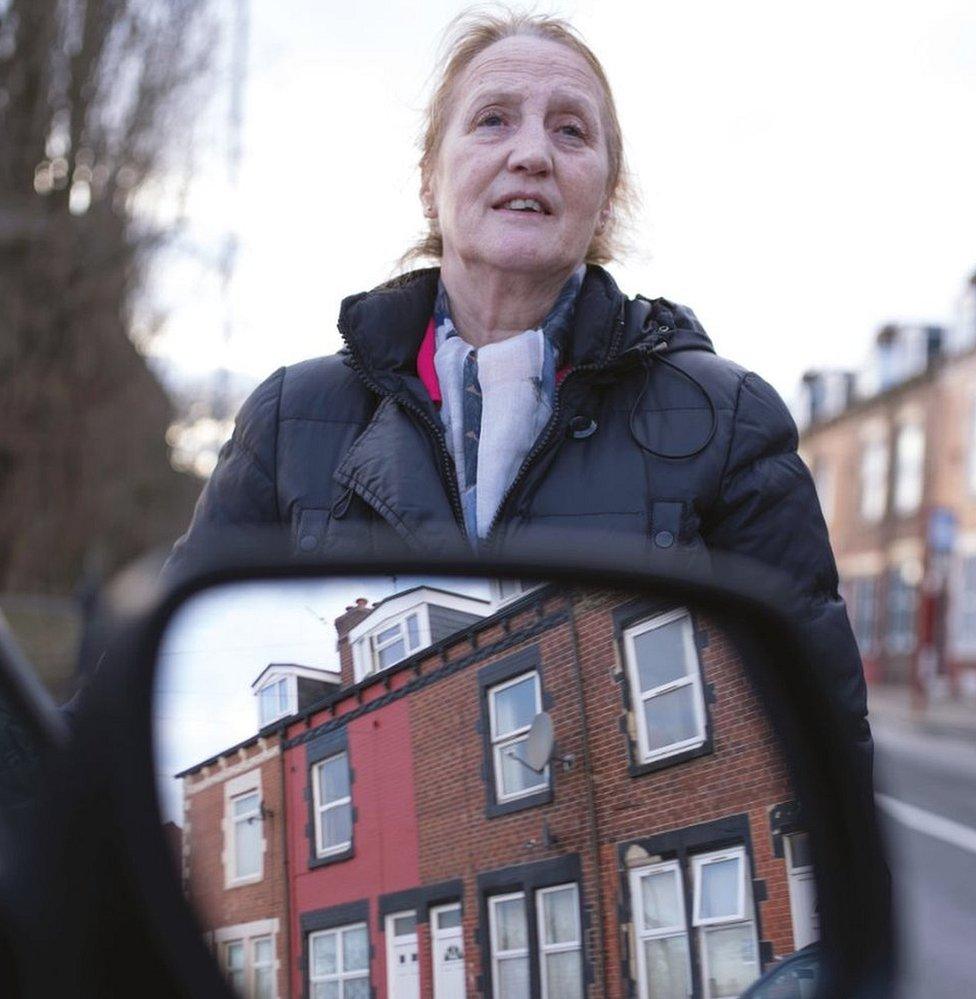
Mary Brennan started a community group in Leeds

"It used to be just families round here, then landlords started bedding seven people in four-bedroom terraced houses. I noticed they were hungry."
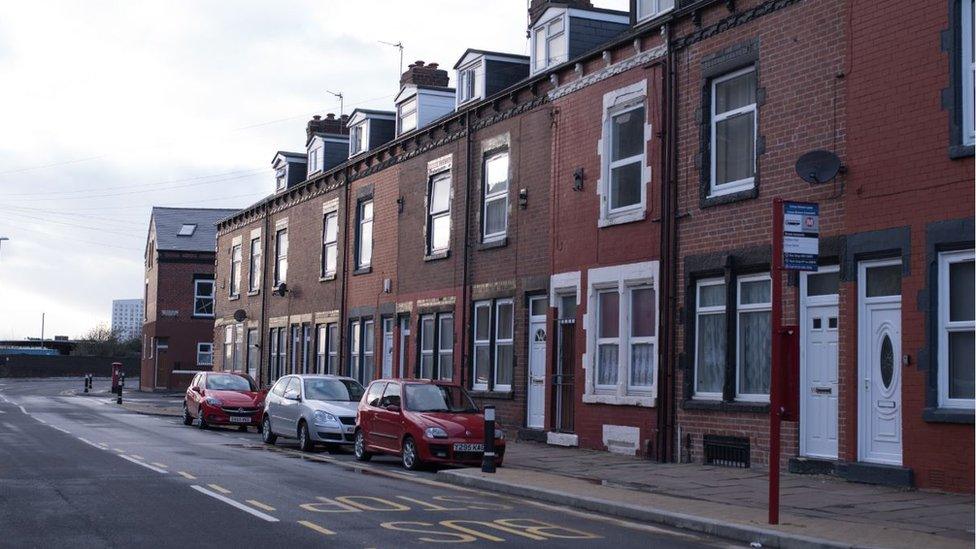
She settled in Cross Green, where she witnessed the struggles of her neighbours
So she helped set up Community Unity, a neighbourhood group that runs a lunch club at St Hilda's Church and created a garden on a disused railway bridge where the community can pick their own food.
"We don't have many facilities round here, no shop where you can buy fresh food and [there's] terrible problems with transport," she added.
'If you're poor, you can't afford ideas'
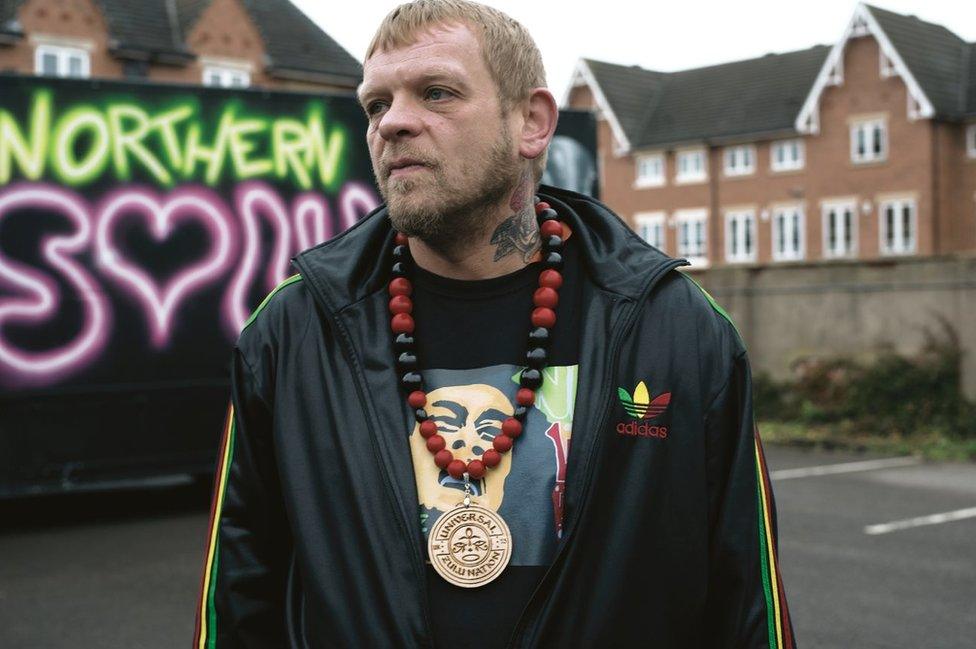
Steve Arnott says hip-hop has always been his love
Poverty can be a barrier to creativity because people can't afford either the money or time to do it, according to Steve Arnott.
The 44-year-old from Hull said hip-hop helped him through a tough childhood and he saw how it could do the same for others.
"Hip-hop has always been my love," he said. "There were local workshops which weren't getting many kids because families couldn't afford the fares into town.
"I had the idea of taking it to them."
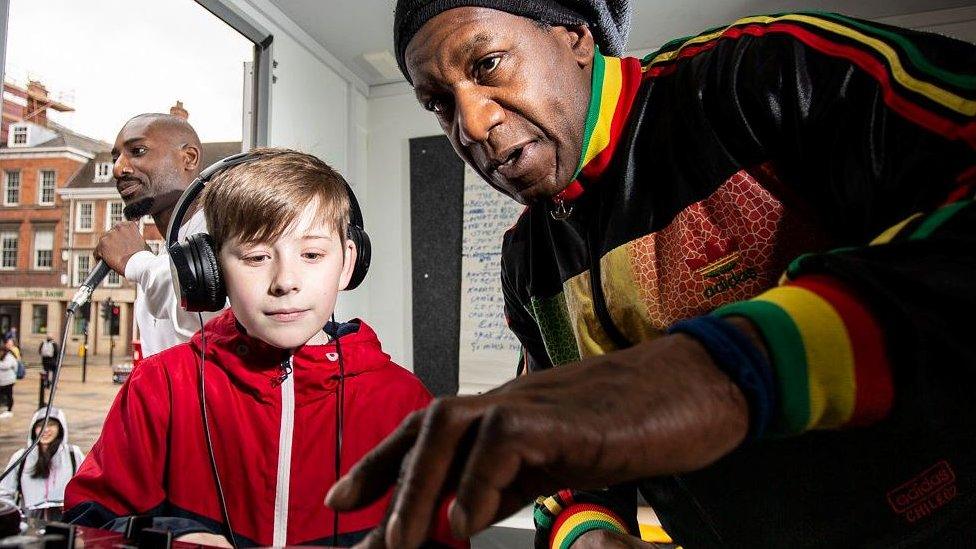
The workshops were aimed at helping children in the community
You might also be interested in:
In 2017, when his hometown was the UK City of Culture, he launched the Beats Bus - a mobile recording studio which he takes into the communities to attract youngsters eager to learn more about hip-hop, DJing, break-dancing and graffiti art.
"If you're poor, you can't afford the time to create ideas," Steve said. "The Beats Bus is trying to change that, bringing free studio time to talented kids."
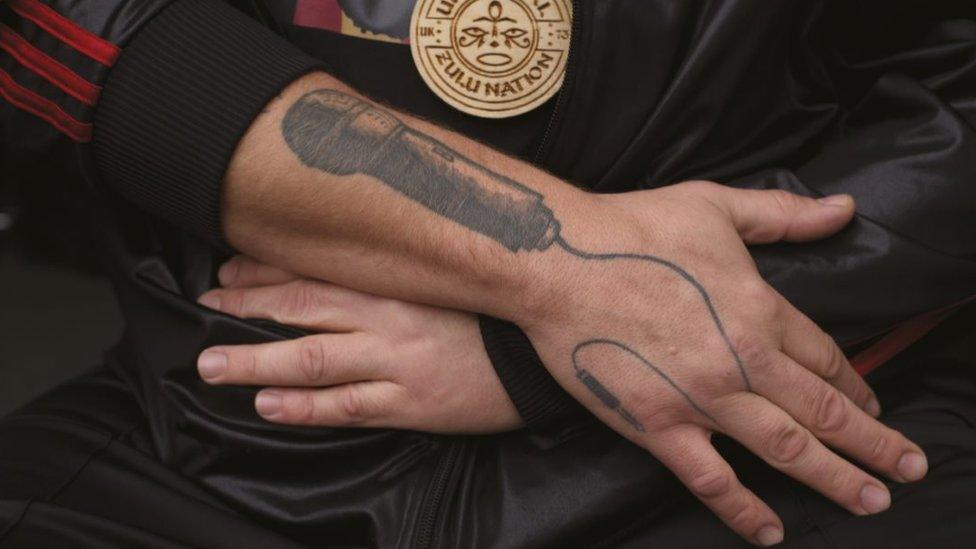
Steve has a tattoo of a microphone on his forearm
'There's no shame in being poor'
The issues blighting the Scholes area of Wigan are being tackled by Barbara Nettleton.
She previously spearheaded a residents' association to reduce anti-social behaviour and improve services, before taking over the running of the Sunshine House community centre.
The site, which opened in 2005, runs art groups and youth projects with a view to helping people find work. It also operates three shops in the area offering necessities including second-hand clothes and prams, toys and baby clothes.
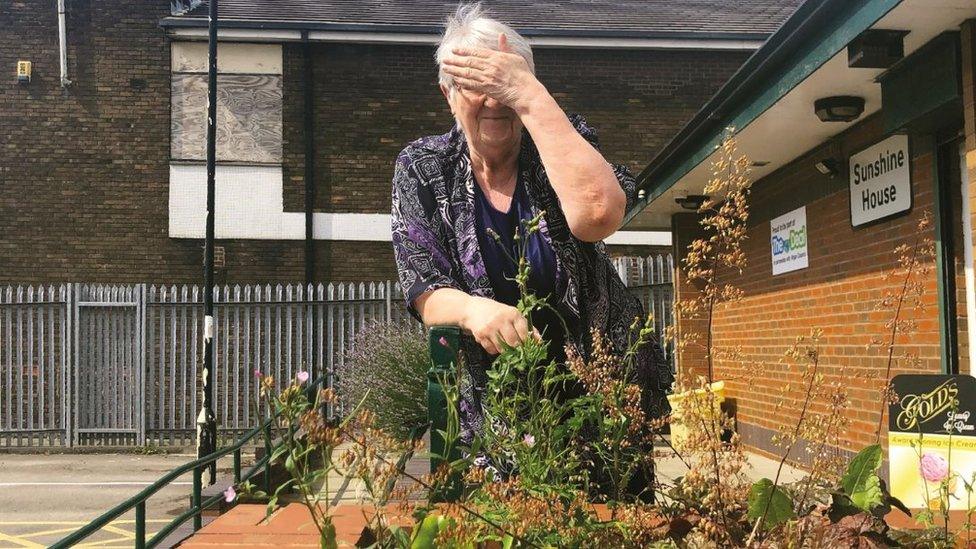
Barbara Nettleton was a bit shy about being photographed
"When the mines, steelworks and mills closed years ago, it took the apprenticeships away, broke families and industrial areas like ours," Barbara said.
"There is no shame in being poor but it's shameful that we are."
Picture Britain: Our People, Our Poverty, external was commissioned by the Joseph Rowntree Foundation and created by photographer Jillian Edelstein and investigative journalist Stephen Armstrong. It will be at Borough Market, London, from 20 February to 8 March.
- Published6 February 2020
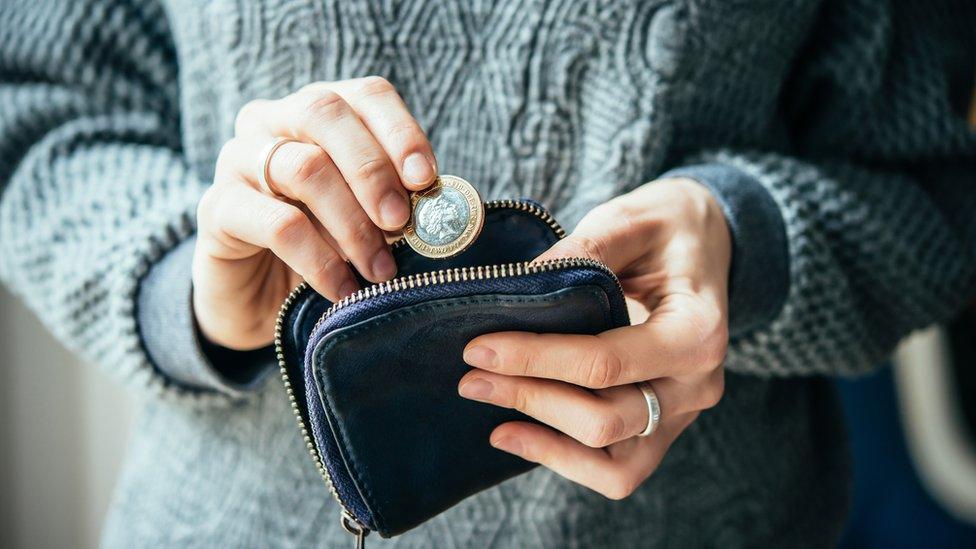
- Published6 September 2016
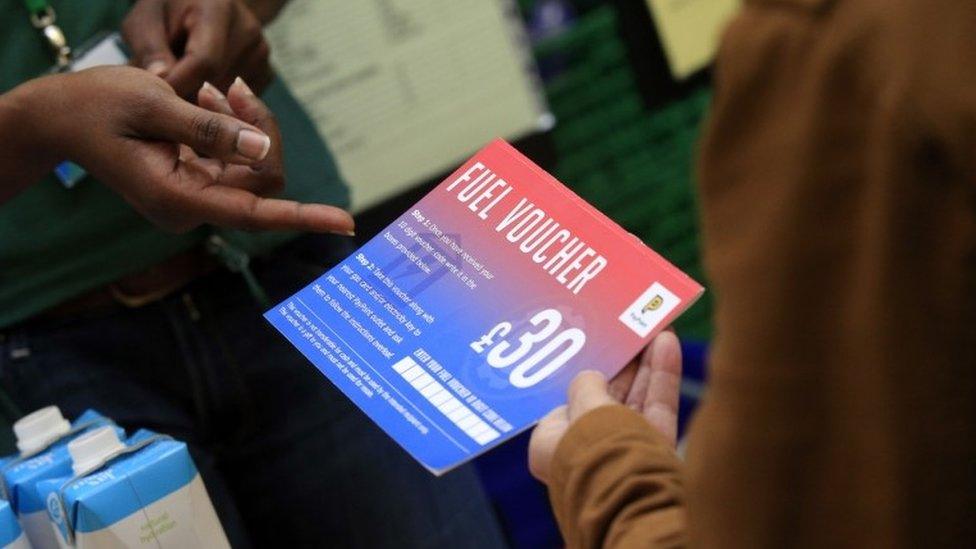
- Published1 August 2016
